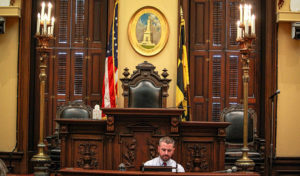Survey shows even majority of California adults oppose pronoun ideology in schools
Support for the use of “preferred” pronouns in schools may not be quite as popular as previously assumed in the notoriously blue Golden State, a new statewide survey by the Public Policy…

Support for the use of “preferred” pronouns in schools may not be quite as popular as previously assumed in the notoriously blue Golden State, a new statewide survey by the Public Policy Institute of California (PPIC) finds.
According to the April PPIC Statewide Survey, 51% of adult Californians oppose public schools allowing students to choose their own pronouns, while only 47% of those surveyed support it.
The PPIC brands itself as a “nonprofit, nonpartisan think tank” whose mission is to “inform and improve public policy in California through independent, objective, nonpartisan research.”
The survey reveals support for preferred pronouns is significantly higher among those younger than 35. While only 42% of adults 35 to 54 support the practice, the rate jumps to 64% for those 18 to 34.
Additionally, while 83% of Republicans oppose preferred pronouns in schools and 70% of Democrats support it, independents oppose it 54% to 43%.
On allowing books about transgender-identifying youth in public schools: While just 49% of California adults oppose it, the opposition rises to 57% among strictly public-school parents.
The survey results have particular resonance amid recent legislative moves on pronoun changes in school settings. Last week, the state legislature passed AB 1955 which, if signed by Gov. Gavin Newsom, would block school districts from notifying parents when a student attempts to socially transition between genders at school – including through the use of pronouns that differ from the student’s biological sex.
Parents’ advocates say the legislation would override parental rights in favor of advancing gender theory.
“AB 1955 signifies a severe governmental intrusion into the sanctity of the parent-child relationship,” Sophia Lorey, outreach director at California Family Council, tells The Lion. “Parents possess an inherent, God-given duty to guide and safeguard their children, particularly during periods of confusion and vulnerability.”
Lorey notes the legislation not only scales back the rights of parents under the law, but also may serve to diminish the relationship between youth experiencing a vulnerable season of life and those entrusted with caring for them.
“It is imperative that we resolutely defend parental rights and uphold the principle that families, not the government, are the rightful guardians of children’s upbringing,” she says.



